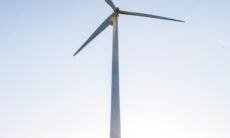My last Biznology post, “Review bots, fake news, and the misinformation age,” discussed how human and digital means were being widely used to spread not-so-accurate news about everything, from Star Wars movie reviews to shenanigans by electoral candidates everywhere. A world where everybody and their bots have a megaphone seems ripe to become the opposite of what Walter Williams envisioned in his Journalist’s Creed. If you’ve never read it, here’s the main excerpt:
I believe that the public journal is a public trust; that all connected with it are, to the full measure of their responsibility, trustees for the public; that acceptance of a lesser service than the public service is betrayal of this trust.
I believe that clear thinking and clear statement, accuracy and fairness are fundamental to good journalism.
I believe that a journalist should write only what he holds in his heart to be true.
Today, the mainstream social media became a de facto “public journal,” and all of us are now journalists of sorts, chronicling events small and big, trivial and life-changing, ephemeral and enduring. But those interminable streams often lack the thoughtfulness, clarity, accuracy, fairness, and above it all, truthfulness advocated by Mr. Williams. As traditional credible news sources struggle to stay afloat, seeing the checkered track record of the new incumbents can be disheartening, and they don’t seem to be getting any better, as Campbell Brown, Facebook‘s head of news partnerships, warned us in a recent event sponsored by the Financial Times:
“The technology is getting so sophisticated that there is going to be video probably by the 2020 election where you are not going to be able to tell if this is a real politician speaking or a fake politician speaking,” she said. “All of us have a responsibility to recognize this is the world we are entering.”
Now, before we declare defeat and welcome our new fake news overlords, it’s important to highlight that this is not our first rodeo in fearing that new technology would doom the world as we knew it. Scribes allegedly protested when movable type was introduced in Europe claiming that it would be easier for bad content to be spread around. The popularization of cars also faced similar negative reactions as traffic deaths became common, as vividly described in the book Autophobia:
As the Russian writer Ilya Ehrenburg declared portentously in 1929, “At first such things were known as ‘catastrophes.’ Now people speak of ‘accidents.’ Soon they’ll stop speaking altogether. Silently they’ll haul away the victim and silently write down the number. Sentimental neighbors wipe their noses, of course, and philosophically minded people argue about the ‘new peril.’ Commissions discuss protective laws. But the automobile keeps right on doing its job. . . . It only fulfills its destiny: It is destined to wipe out the world.”
In both cases, the negative side being discussed was real and very unfortunate, and perhaps for several years after the introduction of those technologies, the cons were in fact outnumbering the pros. But none of them ended up dooming the world: on the contrary, as we learned to mitigate the negatives and maximize the positives, we ended up being better off having the press and having cars than not having them. The bottom line is that, once something is discovered or developed, it simply cannot be “undiscovered” or “undeveloped.” The way to deal with discoveries is to work together to contain the worst of it and exploit the new possibilities they enable. Even the most destructive ones we came up with like gunpowder and the atomic bomb followed that pattern.
At the end of day, it comes down to the classic question: are humans inherently good or evil? While I don’t claim to know the answer, I dare to go out on a limb and affirm that our good side is winning so far: all those inventions did have the potential to tilt the balance towards a dark world, but they never did, at least not for long.
The fact that we are still thriving after thousands of radical inventions, being healthier, wealthier, living longer and redefining what is possible to do with the resources available to us is proof that we tend to make the right choices in the long run. While we cannot undiscover malicious bots and fake news, we’ll eventually outsmart them. It won’t happen overnight, and there will be drawbacks along the way, but going through those dark periods are a required stage in our quest for perpetual improvement.






